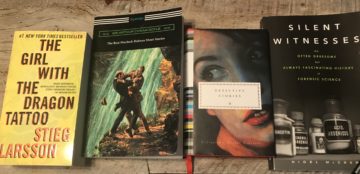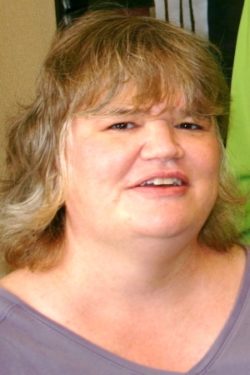When you think of a traditional college course, a few stereotypes may come to mind: lifeless lectures, boring papers and impossible finals. But what if we told you that the Maryville Bascom Honors Program is challenging that status quo?

Geriann Brandt and Germaine Murray, Criminology and English professors respectively, paired up this semester to provide their students with a highly captivating Honors course called “Detective Fiction and the Aesthetic of Crime”.
Utilizing Murray’s vast knowledge of literature and Brandt’s 13 years of experience as a St. Louis County police officer, the class allows two fields of education to unite.
We asked both professors how the class concept was created and they told us it was a natural process due to the friendship between them. Murray had previously taught this class but asked Brandt if she would be willing to join in this time. (To which she gave an emphatic “yes”!)
Brandt believes in the value of collaboration, saying, “As educators, we never stop learning. That’s the best way to learn: from each other.” Their shared love for the detective fiction genré and evil as a whole allows an inspiring learning space for students.
As Murray put it, “You can only understand the psyche of Ted Bundy to a certain extent… You can’t ever understand evil.” Brandt added in, “When you look at crime itself, it’s so dark and convoluted. What could be more interesting than talking about evil and motivation?”

Brandt’s personal enthrallment with crime is backed by over a decade serving and protecting the St. Louis Area in the mid-to-late 1980’s as a fresh-faced criminology graduate. She told us that the St. Louis Area was first becoming infiltrated with gangs at the time and her investigation of crime scenes sparked an interest in behavior and motive.
Murray, too, shares this passion for investigating and expounding on the science of crime as a whole. “The evil period is highly scientized but at the bottom, evil is inexplicable,” Murray told us. “I believe English professors have to know much more than just literature. We must be familiar with contextualization, psychology, and relational science.”

Throughout their course, students are required to read various detective stories. Some include various Semignon and Sherlock Holmes stories, while others like “Girl with the Dragon Tattoo” is a more modern version of noir. (Read an excerpt of the “Dragon Tattoo” book here!) When asked how these stories were chosen, Murray explained that many students have only read pieces of Sherlock, who is so foundational today. “Detective stories are an art form,” Murray told us.
This attitude has shaped the course requirements, and particularly that each student is required to write a short detective story as part of the class.
As Murray said, “College students don’t get to write creatively and often don’t think they can.” Both were quick to point out the value in academia writing, as it is a vital skill for students of all different career fields (especially those in the scientific field!) But by allowing each student to develop their own plot and storyline, they are naturally prompted to “flex their muscles” and recognize the craft and artistry that any good story requires of its writer.
Murray told us that students who have taken this class before often come back and tell her that they actually enjoyed this project, despite originally feeling out of their element.
After conducting this interview and sitting in during class, one thing is clear — this dynamic duo is unstoppable. The blend of knowledge each teacher’s combined field and education experience provides contributes to the uniqueness of a classroom experience like this. We can only hope to see this class back on the registration list for many semesters ahead!
